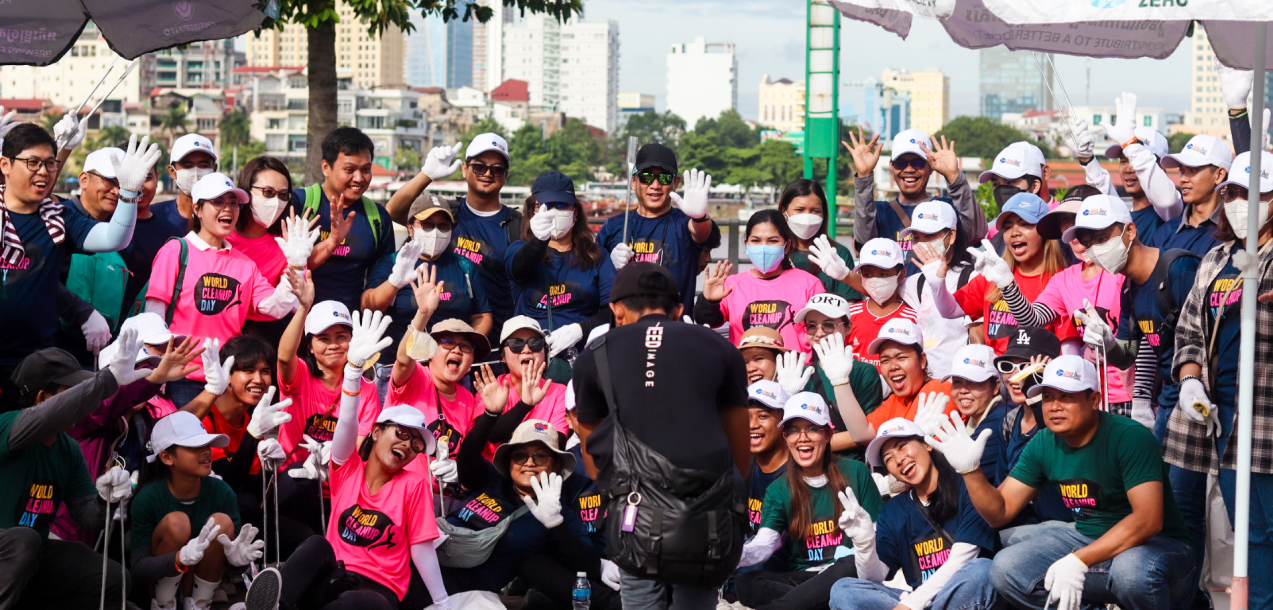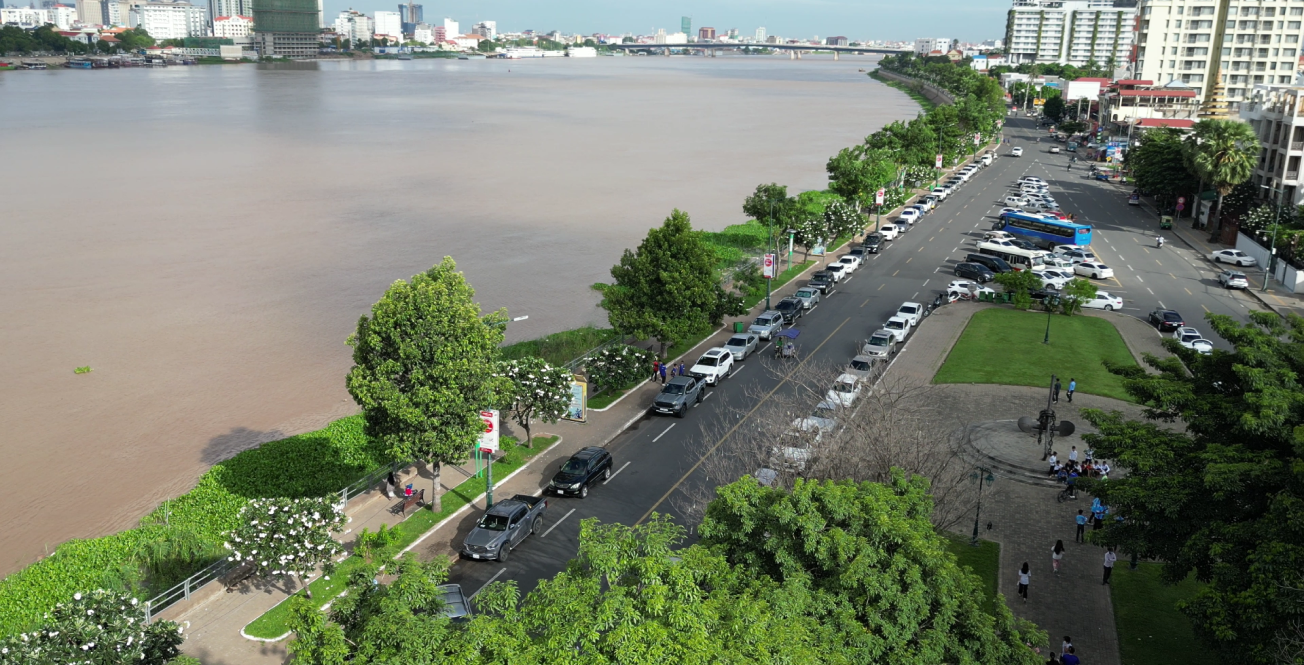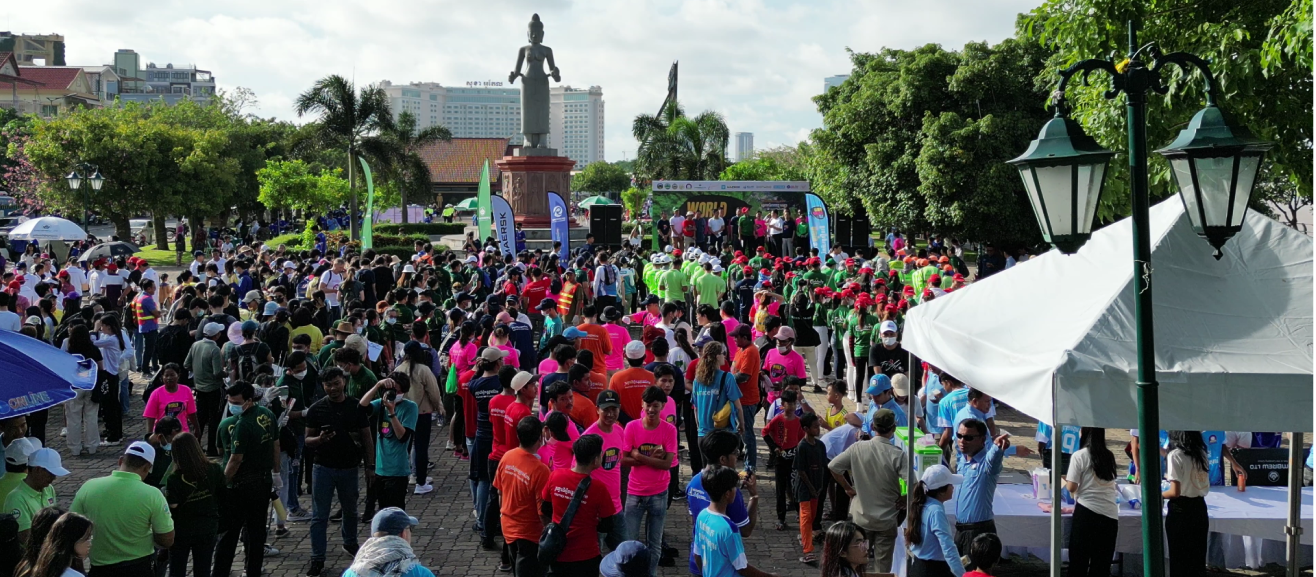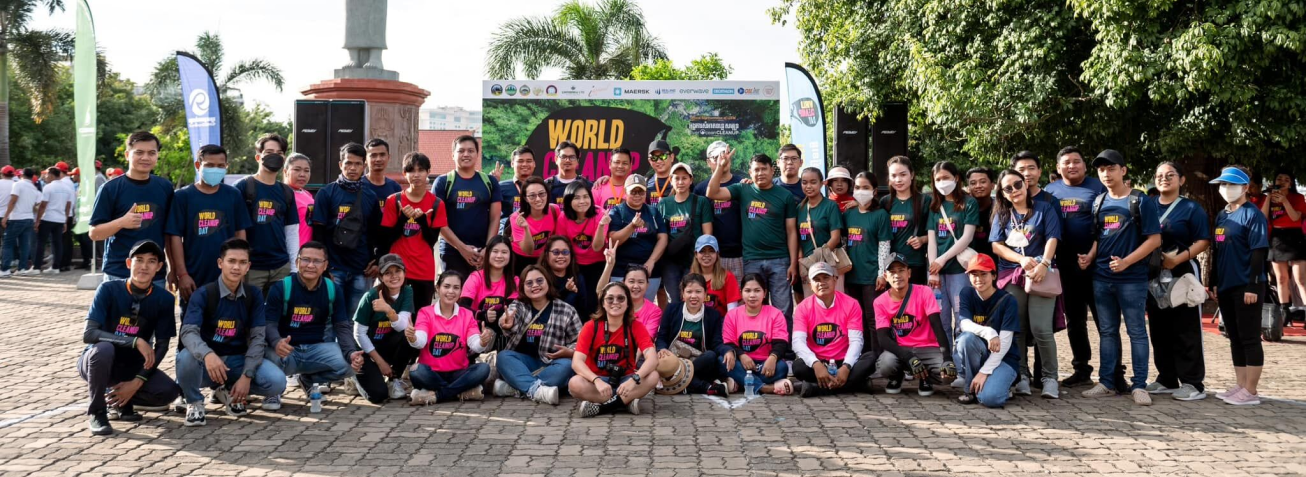A Fresh Start for Cambodia’s
Precious Freshwaters

For many of us, there’s nothing fancy about having a daily supply of purified water, hot and cold showers, and one-tap faucets in our homes. Fresh, safe water is, after all, a basic necessity to survive. But in many rural areas of Cambodia and probably in other places across the globe, these are luxuries people would only experience in their dreams.

While we typically spend our mornings needing only an hour or less to prepare for the day ahead, they wake up before the rest of the world, not to enjoy a cozy and slow morning, but to hustle and stretch their muscles as they walk to and fro the nearest river to fetch water adequate for a day’s worth of consumption of the entire household. You might say that’s a long-forgotten ancient chore, but that’s how mornings look like for them until today.

Sadly, many of Cambodia’s rivers are not as pristine as they used to be. Families who consume water
from these sources are often stricken with water-borne diseases. Despite being aware of this risk and
having experienced it a couple of times, these families are left with no choice but to rely on their
traditional water source as the only resort, as their marginal incomes could not afford the hefty upfront
costs of tap water system installation from reliable and secure sources.
According to water.org, out of its 16 million residents, 72% of Cambodia’s population, equivalent to
roughly 12 million people, lack access to a reliable and safe water source.
Rivers remain to be the primary water source of these people, but they’re under threat because of
pollution and many other challenges. It’s time for a collective effort to help these precious waterways
thrive and survive. It’s time for a fresh start.
Together for Clean Rivers
Understanding the crucial value of rivers to the planet’s well-being, the I Apparel International Group
(IAIG) partnered with the River Ocean Cleanup for the Together for Clean Rivers campaign on the World
Cleanup Day Cambodia 2023. A total of 48 IAIG employees rose early on September 16 to volunteer in
cleaning up the river and riverbanks at the Chroy Changva Park.
Clad in free t-shirts given at the event and protective caps, sunglasses, masks, and gloves, the
volunteers toiled under the early morning sun, picking up trash with tongs and putting these into large
sacks. Random pieces of plastic wrappers and bottles, and cigarette butts were collected, giving the
river and the areas surrounding it a massive reset.
The event successfully ended, but protecting the rivers is a continuous effort for sure. Clean-up drives
like this serve as a reminder and advocacy for that. But how else can each of us give the freshwater
ecosystems hope for a fresh start?

Conscious Ways to Protect and Restore Freshwater Ecosystems
Whether you’re a private individual or an owner of a huge business, you can contribute helpful actions for protecting and restoring our freshwater ecosystems.
- Support Local Watershed Organizations
Sign up as a partner or volunteer working toward river conservation and restoration projects initiated by a local organization such as the River Ocean Cleanup. Stay tuned for their updates on upcoming clean-up events. - Reduc Polluted Runoff
Looking to build or renovate a property? Whether it’s a private residential or business building, you can seek ways on how to incorporate sustainable design features in its architectural design and construction. For instance, installing a rainwater collection system, green roofs, permeable pavers, and gravel beds help reduce runoff.
Another way of reducing polluted runoff is by installing a water treatment facility, so that when used water is released, it won’t pollute the surrounding environment. Plus, it can be reused for other purposes such as watering the building’s greenery.
Be a mindful consumer by opting for eco-friendly household items such as laundry and dishwashing detergents, bath soaps, hair care products, cleaning agents, and more. When these are washed off to nearby bodies of water, you won’t worry about chemical-laden runoff. - Avoid the Use of Pesticides and Chemical Fertilizers
Besides polluting bodies of water, these substances release greenhouse gas emissions that take a toll on the earth’s protective barrier, the ozone layer. That’s why it’s also important to support and promote organic farming and the products gleaned from it. For example, if you’re a clothing retailer or someone who’s looking to establish a fashion brand, look for reliable suppliers and manufacturers of sustainable fabrics such as I Apparel, an apparel manufacturer in Cambodia known for products made of organic cotton. - Segregate and Dispose Trash Properly
Plastic wrappers and bottles are the top solid pollutants you’ll find in rivers and riverbeds. And that’s what happens when people don’t practice proper segregation and disposal of solid wastes. Make sure to separate biodegradable and non-biodegradable materials, and always take note of the trash collection schedule in your community.
When you’re out and about, be responsible by throwing your trash into designated trash bins instead of just leaving these behind random nooks.
Hope for a Fresh Start
Rivers are home to a rich biodiversity. They are crucial in maintaining the ecosystem’s balance and
well-being. Rivers are an important source of fresh water necessary for our hydration and daily
maintenance needs of our buildings and irrigation systems. If all these rivers lose their life, we’ll lose
ours, too. It’s like living and dying in a nightmare at the same time.
While there’s still time, we need to be responsible stewards and give these precious waterways the care
and healing that they deserve.
